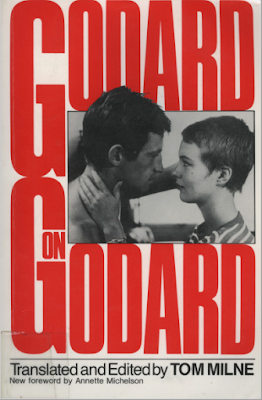"Godard: Images, Sounds, Politics", Colin MacCabe

Colin MacCabe is a British academic, writer, film producer and a professor of English and film at the University of Pittsburgh. A former editor of Screen magazine and a collaborator of British Film Institute (BFI), he has written books on James Joyce ( James Joyce and the Revolution of the Word ) and Jean-Luc Godard ( Godard: A Portrait of the Artist at 70 ). His book Godard: Images, Sounds, Politics analyses visual and sound aspects of the French filmmaker films since the Nouvelle Vague years until his television work, investigating Godard’s oeuvre through a technological, political and sexual perspective. In each chapter Godard gives a brief comment through interviews conducted by MacCabe. Excerpts: “[On Une Femme Mariée ] When we are made privy to her inner thoughts they offer no coherent account of her situation but rather a stream of disconnected phrases. This lack of a coherent view enables the film to break down a unified image of a woman’s body, held in a man’s lo...


